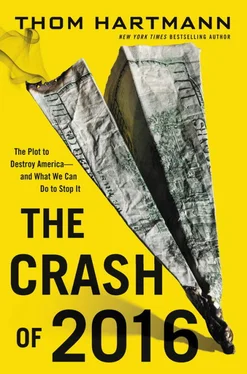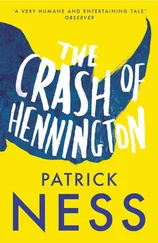In Alaska, the money oil corporations pay to lease and extract oil on public lands is distributed to all Alaskans equally. So, nationwide, all the money oil corporations pay to lease and extract oil on public lands could be distributed to all Americans equally, too.
In 2007, the US government collected $9 billion in royalty payments from Big Oil on just the drilling done in the Gulf of Mexico. 181In reality, we taxpayers should have earned a lot more, but the United States ranks ninety-third in the world in how much revenue it extracts from oil and gas extraction compared with the profits these industries enjoy. 182
That has something to do with Ronald Reagan. Between 1954 and 1983, the average lease for federal land was $2,224 per acre. But after Reagan, between 1983 and 2008, the average lease was just $263 an acre.
But still, $9 billion in royalties from just the Gulf of Mexico is a considerable chunk of change. And if we were to distribute that money equally to all Americans, as they do in Alaska, then it works out to about $30 a person. Not too much money, but when you throw in the leases and royalties paid everywhere else around the nation for oil, gas, and coal—from the East Coast drilling platforms, to the fracking wells and coal mines in Appalachia, to the oil derricks in the Midwest and Texas, we’re talking serious money.
Not only that, think of how much money is put into our common military to defend the interests of Big Oil abroad to make sure the shipping lanes stay open and the oil spigot keeps flowing. Big Oil should contribute a small fee for this service, which can also be added to this common “permanent fund” to be shared by all Americans.
And what about making Big Oil pay for their pollution of the commons? A cap-and-trade system, which forces polluters to pay for how much carbon they dump into the atmosphere, is a good start and could raise even more money for our commons permanent fund to be shared by all of us.
The point is, our commons belong to all of us and should be enriching all of us, and not just the billionaires who’ve put a flag in the ground.
And it shouldn’t stop at just oil.
Wall Street relies heavily on the commons, too. Our markets are regulated by common government, enforced through common courts, and fueled by workers who were educated in our commons.
As entrepreneur and cofounder of On the Commons, Peter Barnes proposes that we should all get a cut every time a company goes public. Barnes argues, “When a company like Facebook or Google goes public, its value rises dramatically… Experts call this a ‘liquidity premium,’ and it’s generated not by the company but by society. This socially created wealth now flows mostly to a small number of Americans… Let’s say we required public companies to deposit 1 percent of their shares in the [common fund] for ten years, up to a total of 10 percent. In due time, the [common fund] would have a diversified portfolio worth trillions of dollars.” 183
Now consider the enormous profits that radio, television, and entertainment companies receive by using our common air and infrastructure and our common copyright laws for basically no charge. They, too, should be paying into the common fund.
Add together all of these “rents” for using our commons, and “We the People” have a raised quite a bit of money for our common permanent fund, money that could go a long way to supplementing the annual incomes of millions of Americans who desperately need a bit more cash.
Somehow, as Royalists were left to run amok in America over the last few decades, we forgot the important role our commons can play in enriching all of our lives. Rather than billionaire CEOs paying us to use our commons, pollute our air and water, dictate our military missions, exploit our markets, and hijack our radio and TV airwaves, it’s all been flipped on its head and we end up paying them . We give them subsidies, generous tax breaks, free usage, and no requirement that they have to share with the rest of us, who actually own those commons, any of the wealth our commons have produced for them.
So in the end, they make billions off what should belong to all of us while we make squat. This makes no sense. And with pressing concerns about wealth inequality, economic insecurity, and environmental disasters, we need to move away from this corporate-exploitation model, and embrace a new universal-shareholder model.
Cure Wall Street’s Madness
One of the ways to put a check on Wall Street’s madness that’s caused the last Great Crashes is through something called a Robin Hood tax—or a financial transaction tax, as it’s technically called.
It’s pretty simple; every single security that’s bought and sold comes with a tiny tax—usually less than 1 percent. In 2012, then French president Nicolas Sarkozy announced a new financial-transaction tax on banking institutions in France—charging a tiny one-tenth-of-one-percent tax on all stock trades.
It’s called a Robin Hood tax, because it’s a tax that only affects banks and wealthy traders, and it generates a lot of much-needed revenue to tackle issues such as poverty, health care, and infrastructure rebuilding.
That tiny, little just one-tenth-of-one-percent tax on only the banks and other stock traders will generate massive revenue for the rest of the nation—upward of 12 billion euros a year.
And if the whole debt-ridden European continent were to go the way of France and put in place a Robin Hood tax on stock trades, that’d be an additional 50 billion euros flowing in.
Not only would a Robin Hood tax raise much-needed revenue, it would also discourage bad behavior, such as excessive financial speculation and high-frequency trading—triggers of economic crises.
As one of the main proponents of the Robin Hood tax in France, an organization called Friends of the Earth Europe argued, “European banks, pension funds and insurance companies are increasing global hunger and poverty by speculating on food prices and financing land grabs in poorer countries… Food speculation, with billions of euros flooding in and out of financial products… causes price volatility. These rapid and unpredictable price swings hit the most vulnerable hardest, threatening their right to food, and making it more difficult for farmers to maintain an income—creating instability, hunger and poverty.”
And they were just talking about European banks, not even American banks. It’s been proven that Goldman Sachs—which opened up the market for speculation on everything from oil to food to gold—played an integral role in the 2008 food shortages around the planet as well as the housing crash.
This is what the banks are doing with all that untaxed money: speculating and creating instability around the planet. But a Robin Hood tax would change all that. And it would put an end to the high-speed machines that account for most of the trades made on Wall Street—machines that make tens of thousands of trades a second based solely on some computer formula.
After the Crash of 2016, it’ll be time to put an end to fraud and theft on Wall Street and make banksters pay their fair share again.
There’s something that every single American family understands—something that Royalists don’t want us to talk about—and that’s the difference between spending and investing.
Let’s assume that the typical American family collects its paycheck at the end of the month and decides to go out to eat for a fancy dinner. A couple of glasses of wine, an appetizer, four entrees, and a few desserts later, the waiter brings the check and that family is now out about $150. Do that once a month as a special treat, and you’re pushing $2,000 a year. That money is not coming back. It was spent and is now gone.
Читать дальше












